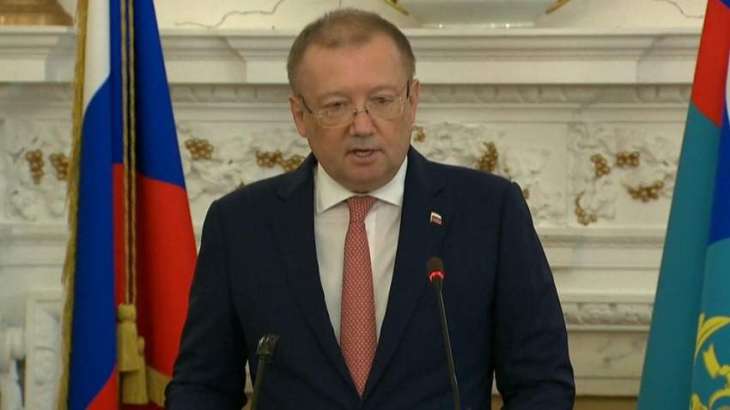Moscow and London will have to coordinate a new trade regime after the UK withdrawal from the European Union, Russian Ambassador in London Alexander Yakovenko said.
MOSCOW (Pakistan Point News / Sputnik - 28th September, 2018) Moscow and London will have to coordinate a new trade regime after the UK withdrawal from the European Union, Russian Ambassador in London Alexander Yakovenko said.
"Considering the UK leadership's multiple declarations of the lack of alternatives to their decision to leave the [European] Single Market and the EU Customs Union, we can already say that the issue of the objective necessity to coordinate a new Russian-UK trade regime (duties, support measures, and other things) will rise after Brexit," Yakovenko said in an interview with the Russian Mezhdunarodnaya Zhizn magazine.
He specified that the new trade regime might envisage both the conclusion of a separate agreement, and the compliance with the Most-favored-nation (MFN) principle of the World Trade Organization, under which granting a favor to one state, the country has to grant it to all the WTO members.
"Even in the second case, the United Kingdom will hardly manage to avoid coordinating a range of major trade issues with us before acquiring the status of an independent WTO member, which requires the consent of all the interested sides," Yakovenko said.
He voiced his regret that the United Kingdom, aiming to enhance its trade and economic ties with major trade partners after Brexit, still did not "rush" to include Russia into the list of its priority partners.
"I'm not sure that this meets London's interests, but this is the UK business anyway," Yakovenko added.
According to the ambassador, even in spite of a tough geopolitical situation, the UK-Russian trade ties were strengthening in 2017 and in the first half of 2018.
"According to the Russian statistics estimates, our trade with the United Kingdom has increased by almost 23 percent, up to $12.8 billion, in 2017, while it has increased by 19 percent from January to June 2018, up to $6.9 billion, compared to the same period last year," Yakovenko said.
In June 2016, the United Kingdom voted in a referendum to leave the European Union and is expected to do so by March 29, 2019. However, both London and Brussels are concerned over a possible no-deal Brexit scenario, as talks on post-Brexit arrangements are hindered by a number of thorny issues, including the customs arrangements.




